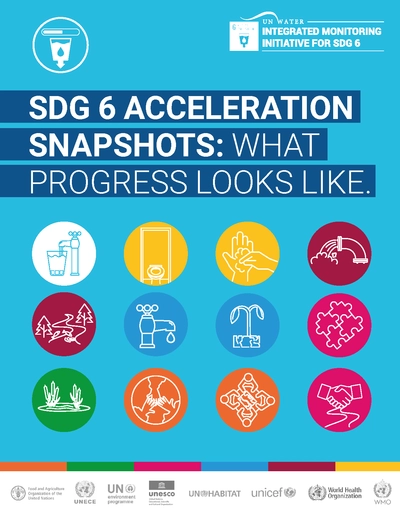The SPP’s persistent and systematic work over the last two decades advocating for the establishment and operation of an interstate cross-border collaboration scheme in the Prespa basin, with special emphasis on joint water management, has recently been recognised by the upper echelons of the global community, the UN system.
The UN-Water mechanism has chosen transboundary cooperation in the Prespa Park as one of only two global good examples it showcased in its publication «SDG 6 acceleration Snapshots” to demonstrate “what progress looks like” in the field of transboundary co-operation for water (and more specifically, with achieving the Sustainable Development Goal 6: Ensure availability and sustainable management of water and sanitation for all, Target 6.5: By 2030, implement integrated water resources management at all levels, including through transboundary co-operation as appropriate). Overall, only 16 snapshots were selected globally to inspire further action on SDG 6.
How transboundary cooperation is progressing in the Prespa Park
In 2010, the adoption of the Agreement on the Protection and Sustainable Development of the Prespa Park Area made it possible to establish the first transboundary protected area in the Balkans.
This Agreement committed the countries to establish permanent structures for collaboration, including the Prespa Park Management Committee (PPMC) and the Working Group on Water Management (WGWM).
In June 2022, a major milestone was achieved through the first meetings of the PPMC and the WGWM in Pyli, Greece, which brought together European Commission representatives, the environment ministries from the three states, local authorities, environmental civil society organizations, and protected area authorities. In January 2023, the second meeting of WGWM resulted in a road map for implementing joint priorities for water management, while the second regular meeting of the PPMC agreed on the “Strategic Action Plan for the Sustainable Development of the Prespa Park.

What is even more rewarding is the full endorsement of the SPP’s strategic approach for a modern official multi-stakeholder participatory transboundary governance scheme, which was often met with resistance by core central state officers in all 3 countries, as well as the recognition that a key success factor for bringing about the formal cross-border collaboration regime was the “Sustained efforts by local civil society organizations and municipalities”.
This development will hopefully contribute in practical terms to a renewed and more ardent engagement of state services and individuals in all 3 littoral countries with the work of the Prespa Park in order to secure more tangible results, important joint decisions and the implementation of necessary measures and activities.
In this vein, a new ambitious objective lies ahead for the SPP and its partners, namely to be able to claim the Prespa Park as a best practice example in the years to come under the next global target, i.e. Target 6.6 By 2020, protect and restore water-related ecosystems, including mountains, forests, wetlands, rivers, aquifers and lakes, which is heavily overdue.

